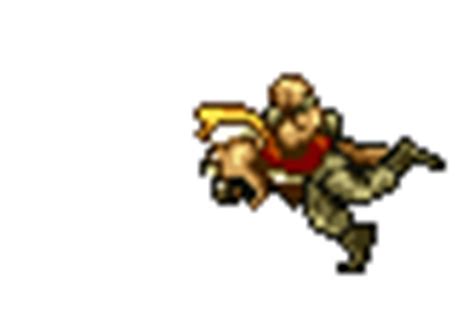DNF龙骑士加点攻略
龙骑士是DNF中一个极具特色的职业,拥有强大的攻击力和防御力。在选择加点的时候,很多玩家可能会感到困惑。下面将为大家介绍龙骑士的加点攻略,希望对大家有所帮助。
基本加点原则
在加点之前,我们首先要了解龙骑士的技能特点。龙骑士主要以物理攻击为主,拥有强大的近战技能和控制能力。因此,在加点的时候,我们需要优先提升物理攻击力和技能等级。
- 优先加满主要输出技能
- 提高技能等级和伤害
- 合理分配点数,兼顾输出和生存能力
在选择技能的加点顺序时,我们可以先将主要输出技能加满,然后再提升其他技能的等级。这样可以确保龙骑士在战斗中有更高的输出能力。
主要输出技能加点

在龙骑士的技能中,有一些技能被认为是主要输出技能,需要优先进行加点。这些技能通常拥有较高的伤害和较短的冷却时间,是龙骑士在战斗中的主要输出手段。
- 龙腾斩:是龙骑士最常用的输出技能之一,拥有较高的伤害和范围攻击能力。建议优先加满。
- 龙吼:是龙骑士的控制技能,可以让敌人陷入眩晕状态。在团队战斗中非常重要,建议提升技能等级。
- 龙之怒击:是龙骑士的必杀技能,可以造成大量伤害。建议加点提升伤害和技能等级。
通过加点优化这些主要输出技能,可以让龙骑士在战斗中有更高的输出能力,快速击败敌人。
生存能力加点
除了主要输出技能外,龙骑士的生存能力也非常重要。在加点的时候,我们需要考虑提升龙骑士的防御力和生命值,以提高其在战斗中的生存能力。
- 龙甲术:是龙骑士的防御技能,可以提升其防御力和生命值。建议提升技能等级,增强生存能力。
- 龙盾术:是龙骑士的护盾技能,可以为其提供额外的防御能力。建议提升技能等级,增加护盾值。

通过加点优化生存技能,可以提高龙骑士在战斗中的生存能力,减少受伤的几率,保证其在战斗中的持续输出能力。
总的来说,龙骑士的加点攻略主要是优先加满主要输出技能,提高输出能力;其次是提升生存技能,增强生存能力。在加点的时候,需要根据自己的玩法习惯和团队需求来进行合理分配,才能发挥出龙骑士最大的战斗力。希望以上加点攻略对大家有所帮助,祝大家游戏愉快!
Dogs of War: An In-Depth Analysis
In the modern world, the term "dogs of war" has come to describe individuals or groups who engage in military conflict with ruthless and unrelenting determination. This concept has been prevalent throughout history, from ancient times to the present day. In this article, we will delve into the origins of the phrase, its evolution over time, and its relevance in contemporary conflicts.
Origins of the Term "Dogs of War"
The phrase "dogs of war" can be traced back to William Shakespeare's play "Julius Caesar," in which Mark Antony refers to the Roman troops as "Caesar's dogs of war." The term was used to characterize soldiers as fiercely loyal and obedient to their commander, willing to engage in battle without hesitation or remorse. Over time, the phrase has evolved to encompass a broader meaning, referring to individuals or groups who engage in war for personal gain or ideological purposes.
- Shakespeare's use of the term "dogs of war" highlighted the fierce loyalty and brutality of soldiers in battle.
Evolution of the Concept
As warfare has evolved over the centuries, so too has the concept of the "dogs of war." In the medieval period, mercenaries were often hired to fight on behalf of a particular faction or nation, motivated by financial incentives rather than loyalty to a cause. These mercenaries were often referred to as "dogs of war" due to their ruthless and unscrupulous tactics on the battlefield.
- Mercenaries in the medieval period were often characterized as "dogs of war" for their lack of allegiance and willingness to fight for whoever paid them.

In the modern era, the term "dogs of war" has been associated with private military contractors who are hired to conduct military operations on behalf of governments or corporations. These contractors operate outside of traditional military structures, often with little oversight or accountability, leading to concerns about their impact on conflict zones and civilian populations.
- Private military contractors have been labeled as "dogs of war" for their profit-driven motivations and lack of allegiance to a specific cause.
Relevance in Contemporary Conflict
In today's world, the concept of the "dogs of war" remains relevant in conflicts around the globe. Non-state actors, such as terrorist organizations and insurgent groups, often engage in asymmetrical warfare against conventional military forces, utilizing unconventional tactics and strategies to achieve their objectives. These groups are often characterized as "dogs of war" due to their willingness to resort to violence and terror to achieve their goals.
- Non-state actors use asymmetric warfare tactics and unconventional strategies to challenge conventional military forces.

Additionally, the rise of cyber warfare has introduced a new dimension to the concept of the "dogs of war." Hackers and cyber criminals can wreak havoc on critical infrastructure and national security systems, causing widespread disruption and chaos. These cyber "dogs of war" operate in the shadows, leveraging technology to undermine and attack their adversaries.
- Cyber warfare has enabled malicious actors to engage in attacks on critical infrastructure and national security systems, posing new challenges to traditional defense mechanisms.
Conclusion
The term "dogs of war" has a long and complex history, evolving to encompass a wide range of actors and behaviors in the context of armed conflict. From Shakespeare's depiction of loyal soldiers to modern-day private military contractors and cyber attackers, the concept of the "dogs of war" continues to be relevant in understanding the motivations and tactics of those who engage in warfare. It serves as a reminder of the brutal and uncompromising nature of human conflict, and the lengths to which individuals and groups will go to achieve their objectives. In an increasingly interconnected and technologically advanced world, the concept of the "dogs of war" sheds light on the changing nature of warfare and the challenges it presents to global security.










网友评论